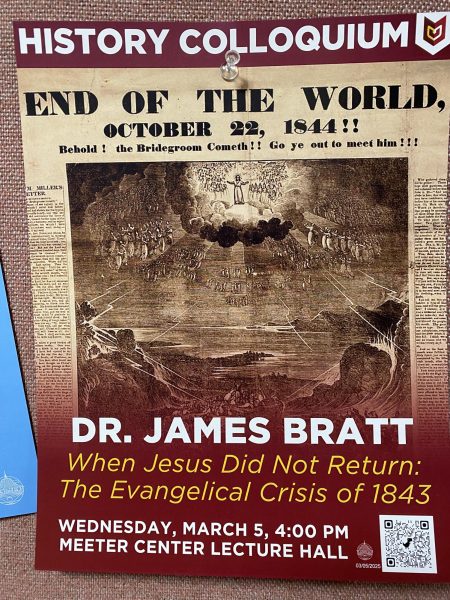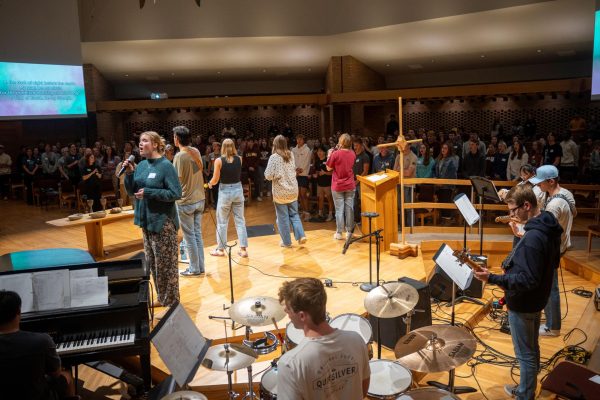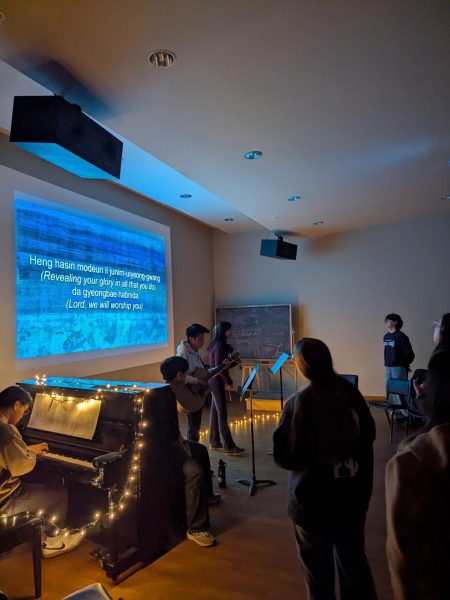More than misandry and marches: Calvin students embrace feminism and Christianity
Colman Van Eck, a junior marketing and film student raised in a non-denominational faith tradition, had a difficult time embracing feminism as a Christian before coming to Calvin. In fact, Van Eck thought it wasn’t possible to be a Christian and a feminist growing up.
“Growing up, I feel like I always had a negative connotation towards the word ‘feminist’ just due to the stereotype that a conservative Christian upbringing drove into me,” said Van Eck. Van Eck soon began researching feminism and developing his own conclusions about feminism after arriving at Calvin. “I realized that being a feminist is actually just believing in equal rights for men and women, which makes me a feminist.”
“I consider myself a Christian because I believe in the teachings of the gospel, and that Christ died and rose again. [A]t the center of the gospel, Christ tells us to love everyone, especially those who are viewed as lesser by society, and so as a Christian, I should be a feminist,” said Van Eck.
It is uncertain if the CRC or Calvin University have an official stance on gender equality and feminism, according to University Pastor Mary Hulst. However, a clear viewpoint of gender equality is declared in a 2014 Campus Ministries document entitled “Female Pastors at Calvin University?”
“In [Jesus’s] presence, neither gender dominates or decides for the other. Men and women are equal partners, the co-stewards of creation God intended them to be,” said the document, which was written by Gayle Boss in conjunction with the campus ministry staff.
Van Eck isn’t the only Calvin student who believes that Christian and feminist ideals can coexist. Many Calvin students are integrating their faith with feminist beliefs.
Kai Barboza’s Quaker religious community included female religious figures such as elementary school youth leaders and temporary female pastors who held positions akin to that of Campus Ministries. Displays of female Christian leadership encouraged Barboza to embark on a path toward Christian feminism, which he has continued on during his time at Calvin.
Feminism has always come easily to Barboza, a junior studying engineering and political science. Barboza, who identifies as both a feminist and a Christian, feels that biblical justice cannot be pursued without including feminism.
“One of the key foundations of my faith is that the goal of Christianity is to bring Heaven to earth,” Barboza told Chimes. “Now, I am not suggesting that I know who is going to heaven but can say with certainty that everyone will be equal under God. If I am to bring heaven to earth, it is my calling to fight for equality whether they be man, woman, Black, white, gay or straight.”
Embracing feminism with Christianity, according to Van Eck and Barboza, has been simple due to Christ’s inclusive nature towards women displayed in the Bible.
Fellow student Abby Sytsma, a junior studying nursing, credited Christ’s nature with inspiring her to embrace feminism as a Christian. In fact, feminism has brought Sytsma closer to Christ.
“Feminism has brought me closer to Christ as I learn more about Jesus when I look at his relationship with women in the Bible,” said Sytsma.
For Sytsma, a journey towards Christian feminism has never been undertaken by her because feminism is an integral component of her faith — to be a feminist is to be a Christian.
“I don’t really have a journey as a Christian feminist as I believe it’s just as important to Jesus as it is to me and others,” I understand Christianity to be supporting of feminism as Jesus continued to be friends with many women and seems to me to the first to actually try to get to know women in the Bible,” said Sytsma.
For Barboza, Van Eck and Sytsma, feminism is more than misandry and marches, and they are encouraging people who are hesitant to embrace feminism to look at it from a Christian lens.
“I think the biggest misconception that people have about feminism is that it seeks to have women over men, but this couldn’t be farther from the case. Feminism is about dismantling the system in place that keep women out of the conversation,” said Barboza.






